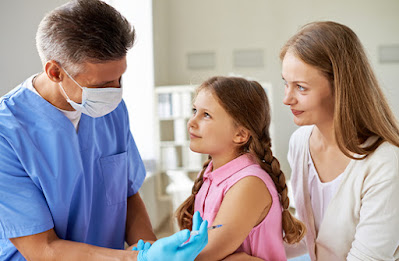Why access to health care is important for children.
Access to child health care, and pediatrics is essential to the health and development of all children. Pediatrics focuses on the care of children up to age 18. Children are not miniature versions of adults. They require unique treatments best provided in pediatrics. Therefore, children need access to health care. Babies need regular check-ups with a pediatrician to monitor their growth and development as well as recommended immunizations to prevent illness and disease. These routine visits can catch health problems early, allowing for timely treatment and prevention of serious conditions.
Early intervention and treatmentThere is no doubt that
the sooner a problem is identified, the sooner treatment can begin. Early
treatment can help limit the disease and make it more effective. Developmental
delays can be identified and corrected through early intervention and
treatment. Regular physical examinations of children are important to measure
progress and facilitate early intervention if necessary.
According to the
American Academy of Pediatrics, about 97.6 percent of children under the age of
18 have access to medical care. However, only about 76% of children have
regular pediatric check-ups.
Prevention of
childhood diseases
Children should have
access to healthcare providers who can immunize them against childhood
illnesses. Preventive measures can reduce the risk of serious illness and
reduce overall mortality associated with childhood illness. During wellness
visits, medical professionals often provide valuable information about proper
nutrition and other preventative measures parents can take.
Children are more
prone to certain diseases than adults. They also tend to spread disease. All children
should have access to preventive health care. Here are some ways to prevent
illness in your child:
- vaccination. Immunization is one of the most effective
ways to prevent illness in children. Vaccines can protect children from
many diseases, including measles, mumps, rubella, polio, and whooping
cough.
- Good hygiene: Frequent hand washing with soap and water,
especially before eating and after going to the toilet, helps prevent the
spread of disease-causing bacteria. Encourage your child to cover their
mouth and nose when coughing or sneezing.
- Healthy food. A healthy diet can help strengthen your
child's immune system and reduce the risk of infection. Encourage your
children to eat plenty of fruits, vegetables, whole grains, and lean
proteins.
- Physical activity. Regular physical activity can help
improve a child's overall health and reduce the risk of chronic diseases.
- Get enough sleep: Getting enough sleep is important for
your child's growth and development as well as maintaining a healthy
immune system.
- Regular check-ups: Regular visits to the doctor will
ensure that your children have the proper vaccinations and check for
possible health problems.
- Avoid exposure to toxins: Children should be kept away
from tobacco smoke, lead, and other environmental toxins that can harm
their health.
Children's Urgent Care
can provide convenient and timely medical care for your child. It's always a
good idea to check with your healthcare provider to see if they have any
recommendations for urgent care facilities in your area that specialize in
pediatric care.




Comments
Post a Comment